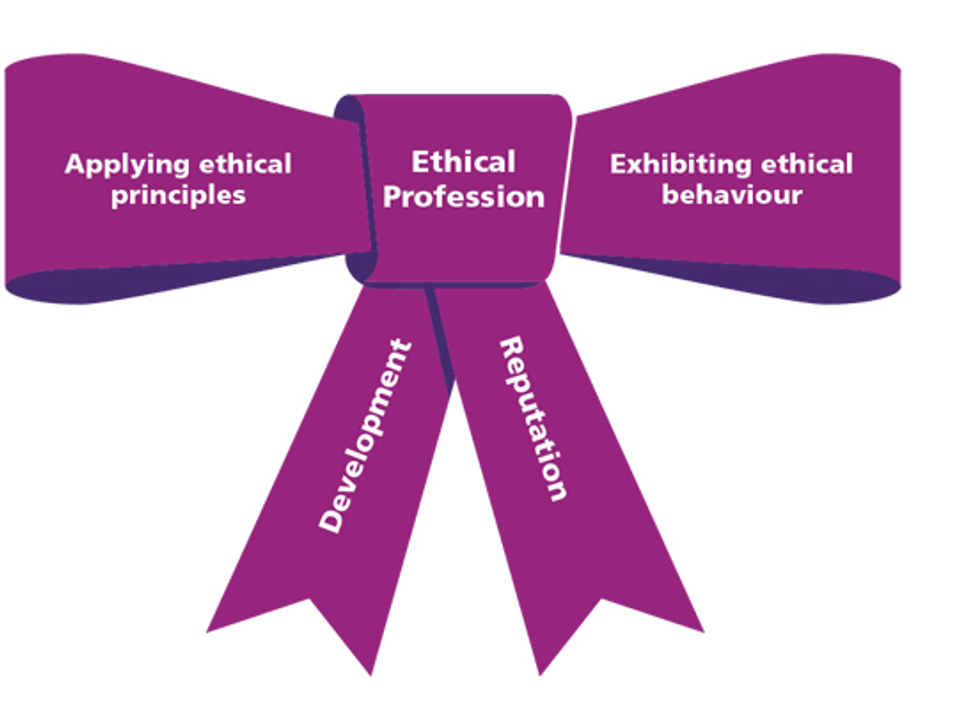Smartening up the ethical bow tie
- Date posted
- 02 January 2024
- Type
- Opinion
- Author
- Duncan Spencer CFIOSH
- Estimated reading time
- 3 minute read
Many occupational safety and health (OSH) professionals are quick to suggest we are an ethical profession. IOSH’s Head of Advice and Practice, Duncan Spencer CFIOSH, explores what this means.
Being ethical is an expectation for any organisation and the concern of boards the world over. After all, from ethical positioning flows organisational reputation and customer confidence.
Ethical actions are important for all professions. When IOSH launched its competency framework, it included one focused on ethical business practice. To further underpin the importance of this topic, IOSH has introduced an annual assessment that all Chartered members must take and pass. But closer inspection of these initiatives reveals that the focus is on adopting ethical behaviour (ie applying the knowledge necessary to safeguard against corruption, fraud and bribery). While these are vitally important, we must acknowledge that ethics is much more than that, as illustrated in the simple bow tie model below.

Ethical profession, dictated in a bow-tie graphic.
Being ethical is an expectation for any organisation and the concern of boards the world over. After all, from ethical positioning flows organisational reputation and customer confidence.
If the knot holding everything together in the centre can be likened to the creation of an ethical profession, it relies on both the application of ethical behaviour and the active use of agreed ethical principles to inform decision-making. Through the application of both, the reputation of the profession is built, and a firmer foundation for the future development of the profession can be assured. A balance is needed.
The Blueprint Ethical Practice in OSH e-learning and assessment provides up-to-date and relevant content on ethical considerations that affect organisations and our profession in the widest sense. It will lead us to exhibit ethical behaviour.
IOSH’s Code of Conduct commits members to our vision for a world of work that is safe, healthy and sustainable. It provides an ethical foundation for members working towards this vision. From such a foundation a good professional reputation can be built.
Ethical principles
We are presently weak as a profession in our recognition of, and general debate around, the articulation of ethical principles. There are some important questions to reflect upon. What are the ethical principles that should govern and validate our decision-making in the workplace? Should we have a set similar to those adopted by the medical profession (ie autonomy, beneficence, non-maleficence and justice)? How should such principles be interpreted and used in practice?
Principles are important. In the pursuit of the IOSH vision for a safe and healthy world of work, adopting a principled ethical approach would inform our policies and engagement. They would inform our dialogue with governments and global partners. And at a micro level, a set of ethical principles would help OSH professionals influence boards and fellow workers. They would inform the basic arguments needed to influence culture and OSH performance.
Without an agreed set of ethical principles for OSH professionals, a wholesome critique of the profession and its belief structure is consequently diminished, and thereby its future progression is certainly more difficult to achieve.
While some members of the profession are already using philosophical tools and ethical principles to inform their work, we lack a common agreement as to what they are. If we are to continue to claim to be an ethical profession, then our development and reputation must be driven by the universal adoption of ethical behaviour standards and ethical principles.
Now is time for us to debate and agree what those ethical principles are.
Start your ethics training
Ethical practice underpins everything we do as OSH professionals and we encourage all IOSH members to do our e-learning and assessment to keep up to date with current practice. It’s about trust and integrity and doing the right thing even when no-one is watching.
Last updated: 10 February 2026
Duncan Spencer CFIOSH
- Job role
- Head of Advice and Practice
- Company
- IOSH
 IOSH
IOSH
